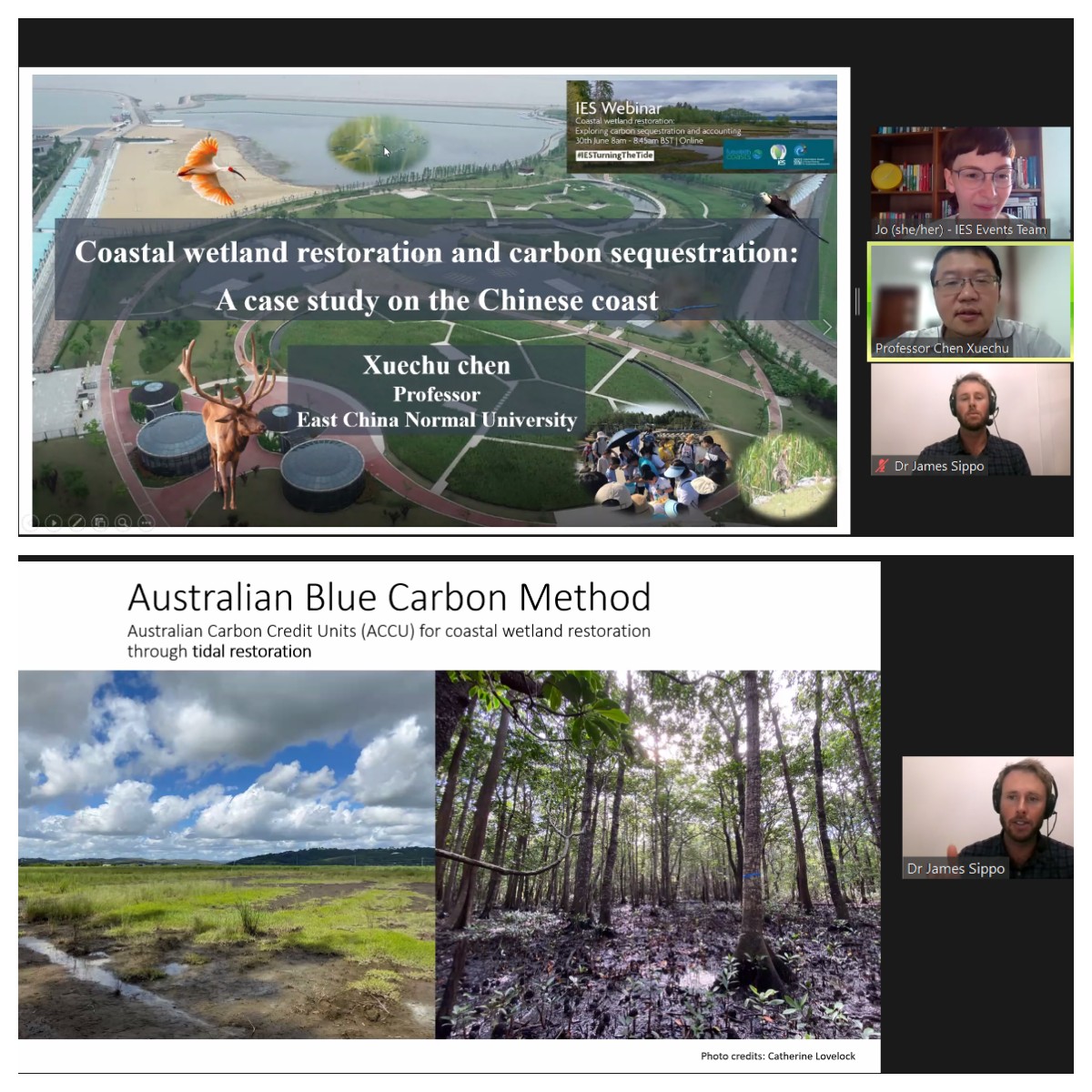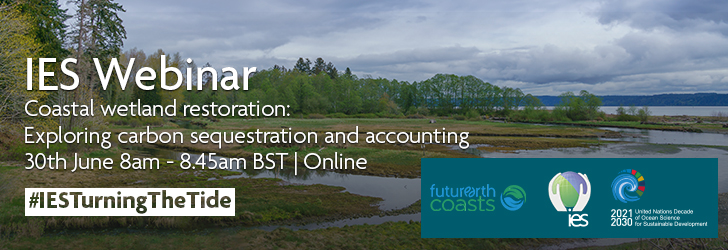Future Earth Coasts (FEC) and the Institution of Environmental Sciences (IES) joined forces to organize a webinar on coastal wetland restoration. The webinar, held on June 30th, featured expert speakers from China and Australia who shared their research and case studies.
Professor Chen Xuechu from East China Normal University presented a case study on Chinese coastal wetland restoration and carbon sequestration. His findings revealed that restored wetlands act as larger carbon sinks compared to natural marshes. This restoration not only helps combat climate change but also provides vital habitats for diverse wildlife. Dr. James Sippo, a Research Fellow at Southern Cross University, discussed the Australian Blue Carbon Method, which offers carbon credits for coastal wetland restoration. He explained the carbon cycling in mangrove ecosystems and highlighted the potential for using blue carbon sequestration as a natural mitigation strategy for climate change. After the presentations, a Q & A session allowed the audience to engage with the speakers and further explore the topics discussed.

The webinar was organized as part of the Turning the Tide: systems thinking for a sustainable ocean project, which is endorsed as a UN Ocean Decade Activity. Future Earth Coasts and the Institution of Environmental Sciences aimed to raise awareness about the significance of coastal wetland restoration and its role in achieving a sustainable ocean ecosystem.
The joint webinar served as an informative platform, emphasizing the need for concerted efforts in coastal wetland restoration to combat climate change and safeguard biodiversity. The insights shared by Prof. Chen Xuechu and Dr. James Sippo shed light on the importance of restoring and protecting these vital ecosystems for a sustainable future.

